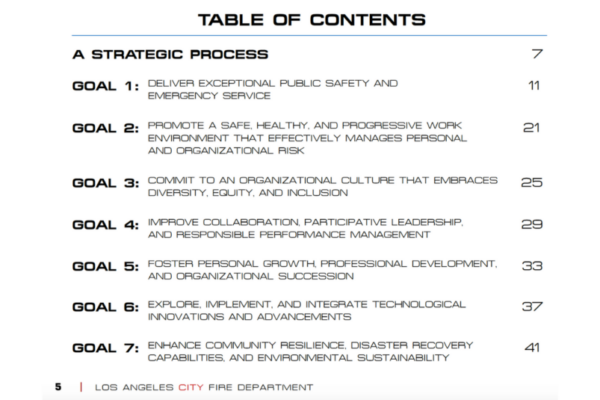How Melania Trump’s ‘Be Best’ Initiative Could ‘Make America Healthy Again’

Incoming First Lady Melania Trump said she plans to “expand” her “Be Best” initiative in an interview with Fox News on Monday.
“I think it will be an exciting four years, and we have a lot to do and put the country back in shape,” she said, without offering details about what that expansion might include in her activism for child wellness.
An obvious opportunity for expansion is a campaign to get the country literally back in shape, and succeed where her first predecessor failed.
Any White House initiative to tackle childhood obesity would be a natural parallel with the administration’s effort to “make America healthy again.” And if ever there were an issue to draw bipartisanship, the crusade which drew a pro-abortion Democrat from the presidential race and into a Republican cabinet as Health and Human Services (HHS) secretary would be it.
Trump said she was eager to continue her “Be Best” programs after Silicon Valley began to reform its antagonistic approach to a Republican-ran White House. Last time, she said about her first tenure as first lady, “I didn’t have much support from anyone” and recalled inviting “all of the streaming platforms” to a roundtable event.
“I didn’t have much support from them,” she said, but asked viewers to “imagine what we could do in those years if they will rally behind me and teach the children and protect them about social media and their mental health.”
The first lady-elect, however, is now looking forward to a second term with a behind-the-scenes Amazon documentary coming this year after the triumphant success of her memoir out last fall.
[LISTEN: Melania Trump’s Grand Return To The White House: What To Expect]
“It’s an exciting time,” Trump said, while her husband’s cabinet nominees brand the slogan “Make America Healthy Again” (MAHA) as a prerequisite to “Mak[ing] America Great Again” (MAGA) in a second term.
In a September op-ed for The Wall Street Journal, environmental lawyer Robert F. Kennedy Jr. outlined how another Trump administration could reinvigorate the nation’s health as “Americans are becoming sicker, beset by illnesses that our medical system isn’t addressing effectively.”
“Mr. Trump has made reforming broken institutions a cornerstone of his political life,” Kennedy wrote, chronicling the crises confronting children and teens in particular, with nearly a third of the latter already prediabetic and nearly the same number on prescription drugs.
“There is nothing more profitable for much of the healthcare system than a sick child,” said Kennedy. President Trump “has become the voice of countless Americans who have been let down by our elites. He could unite the country by making it his priority to make America healthy again.”
And so too could the first lady herself in her role spearheading the administration’s initiatives for healthy children. As outlined in my new book, Fat and Unhappy, many of America’s myriad medical crises, both physical and mental, are foodable rather than druggable. Americans, however, remain reliably confused about nutrition standards manipulated by the food and drug industries, which are now the target of reforms by Kennedy in the new administration. In other words, Americans are eager to stop being fat and unhappy but don’t know how.
While Kennedy’s platform includes reinstating the Presidential Fitness Test and mandating nutrition courses in medical schools, the potential new secretary of HHS is primarily in pursuit of bureaucratic reforms directed at the food and pharmaceutical industries. A new branch of initiatives from the White House embracing education and personal responsibility amid a renaissance in nutrition science, particularly in metabolic psychiatry, will be key to any presidential program to make America healthy again.
Dr. Christopher Palmer, a Harvard clinical psychiatrist and author of a book on the connection between brain health and metabolism, told The Federalist the MAHA movement presents the first lady a “huge opportunity” to “improve the health of our children.”
“And that means both mental health and physical health because those are inseparable,” Palmer said in an interview.
Palmer explained how nutrition science has developed in the 10 years since the launch of former First Lady Michelle Obama’s campaign with a greater understanding of how ultra-processed food impairs brain function. While the Obama initiative was launched with good intentions, the demonstrably unsuccessful effort still focused too much on a broken calorie model promoted by the food industry. When the Obama’s swept into office in 2009, nearly 17 percent of children aged 2-19 were categorically obese. By 2017, that number grew to 19 percent, or nearly one in five. But children are not just heavier than they were 10 years ago, they are also sadder, both of which are increasingly recognized as a reflection of metabolic dysfunction driven primarily by unhealthy diets.
“One of the most important things that we’ve learned in the last 10 years is that the foods that we eat, in particular ultra-processed foods, impact the brain and that means they can play a role in mental health,” Palmer said.
The author of Brain Energy referenced two studies in particular, including a global analysis of roughly 300,000 participants whose mental health deteriorated from stress, sadness, and hopelessness, among other psychological issues, with higher consumption of ultra-processed food. Researchers reported those who consumed ultra-processed foods had a 3-fold increase in the risk of poor mental well-being.
Another paper mentioned by Dr. Palmer is a longitudinal study published in 2021 which investigated childhood body mass and insulin sensitivity related to long-term mental health outcomes. European researchers who examined more than 10,000 individuals from age 1 to 24 found children with high fasting insulin levels by nine years old were associated with experiencing psychosis by 24 while those with a premature increase on the body mass index had a higher association with depression at 24.
Palmer characterized any campaign by the incoming first lady on childhood mental health that doesn’t include some component of education around exercise and nutrition as “highly ineffective.”
“It would sound good, it would be a lot of talk, but it likely would not move the needle for our children’s health,” he said, adding “the most important thing she could do is educate” on “the role of nutrition in children’s brain health.”
What that education might look like will likely be controversial, but the administration would be wise to not rely on the incumbent dietary guidelines with no warnings against ultra-processed foods while endorsing low caps on dietary fat now targeted for reform.
No number of responsible regulations and recalibrated nutrition standards ushered in by Kennedy, or anybody else, however, will change Americans’ health for them. Americans are going to have to learn how to “be the change” themselves and embrace healthier habits like smokers determined to quit cigarettes. That’s where the new first lady’s initiatives on childhood mental health present a generational opportunity for the Trump administration to succeed where the Obamas failed.




